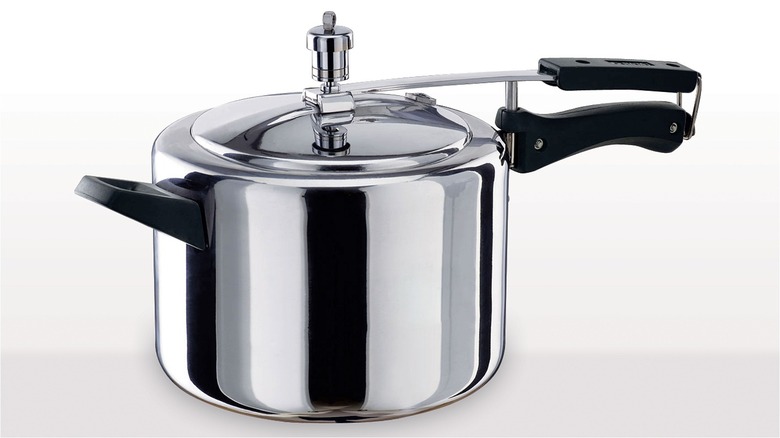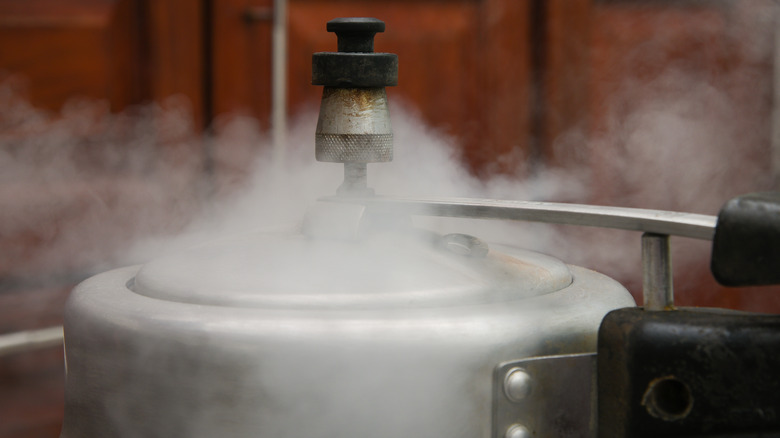The Scientific Correlation Between Water And Steam In A Pressure Cooker
Visit a South Asian country, and chances are you will hear peculiar whistles blow in your neighborhood in the morning and at dinner time. Those faint, yet aggressive sounds tell you that food is being cooked. If you hear a whistle in your residence, you better work up an appetite, because a pressure cooker is signaling that something delicious is cooking. A pressure cooker's whistle is like a mother for dinner when it's not ready yet.
Ever since the device was invented a few centuries ago, pressure cookers have made lives easier by significantly cutting down the cooking time. Their modern relative, the Instant Pot, has the same functionality without the signature whistle (per How Stuff Works). But pressure cookers remain a favorite in many households. According to TechRadar, traditional pressure cookers deliver higher pressure, as compared to most Instant Pots, but the science is basically the same.
The science behind how pressure cookers work is a marvel. To borrow the words of Albert Szent-Györgyi, water is a pressure cooker's "matter and matrix, mother and medium," and there is no pressure without steam. Here's how the two are correlated.
The dance of steam and water
If you've ever used a pressure cooker, you know the drill. A little water goes a long way when it comes to cooking most foods, but have you ever wondered how food can cook so fast? Nothing works better under pressure than a pressure cooker. According to Exploratorium, pressure is what makes food cook faster.
The water heated in a pressure cooker is sealed by a tight lid that doesn't allow steam to escape. As the water boils, more and more steam collects over the food and increases the pressure inside the cooker. Since the boiling point of water depends on the level of pressure, per LibreTexts, the temperature of water in a pressure cooker increases, and the longer it boils, the more the pressure increases. On a molecular level, gas molecules move faster as temperature rises, which in turn, increases pressure (via Exploratorium). Since food breaks down faster in high heat, pressure cookers can then do the job quickly and efficiently.

